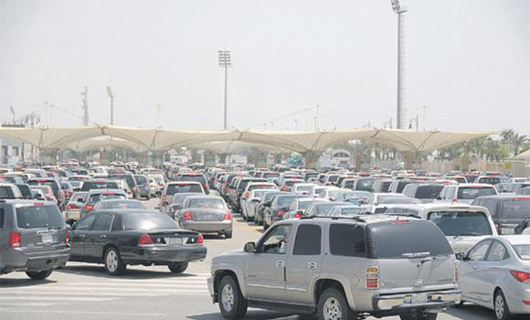Riyadh, Oct 23: Eighteen million licensed vehicles are likely to be on Saudi roads by the end of this year, from 17 million last year, according to a study published by Al-Eqtisadiah daily.
The number of licensed cars rose by 7 percent from 2011 to 2012, to 15.9 million vehicles, it said. This was a rise of 975,000 cars from the 14.9 million in 2011.

About 81 percent of the registered vehicles in 2012 were in the three major provinces of Makkah, Riyadh and the Eastern Province.
Makkah province registered 5.1 million vehicles accounting for 32 percent of the total of 12.8 million vehicles registered in the three provinces in that year.
Riyadh province followed with 4.8 million registered vehicles accounting for 30 percent of the total vehicles registered followed by the Eastern Province with more than 3 million vehicles accounting for 19 percent of all registered vehicles, the report said.
The country’s traders paid SR356 billion to import cars over the past six years. The cost of imports rose 3 percent from SR77 billion in 2012 to SR79 billion last year, according to the study.
The study stated that SR53.8 million worth of cars were imported in 2008, falling 22 percent to SR41.9 billion in 2009, attributed largely to the global financial crisis. However, it increased 22 percent in 2010 to SR51 billion, then SR53.7 billion in 2011 and R76.6 billion in 2012.
Makkah has the dubious credit of recording the most accidents at 1,993 in 2013, followed by the Eastern Province with 1,018, and Riyadh with 554.





Comments
Add new comment